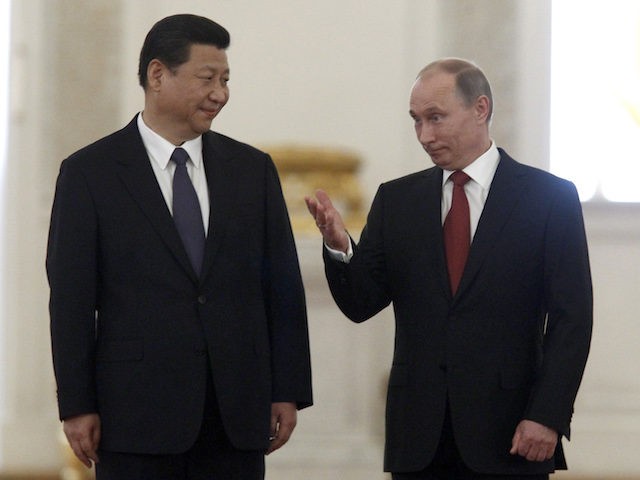China’s state-run Global Times on Monday weighed in on the increasingly serious conflict between Russia and Ukraine, advising the Ukrainians their best interests lie in playing along with their huge, belligerent neighbor instead of counting on the Western world for rescue.
The Chinese paper’s argument to Ukraine sounds quite a bit like what China tells Taiwan about the futility of resisting a hemispheric super-power to align itself with the West:
NATO and the European Union reacted fastest to Sunday’s conflict. They have sided with Ukraine for a long time. Such a tendency stems from their fundamental stance of suppressing Russia. Which side is right or wrong in a specific conflict between Russia and Ukraine is less important.
Since the Crimean crisis, countries have become used to the stalemate between the two countries. Russia and Ukraine will obviously suffer the biggest losses. Kiev has won sympathy from the West for confronting Moscow. Emotionally, Kiev is closer to the West. But such closeness has not transferred to Ukraine’s actual interests. Ukraine is now under tremendous pressure from Russia, its domestic unity and stability facing unprecedented challenges.
The West’s sanctions on Russia started with the Ukrainian issue. The deadlock between Moscow and Kiev jeopardized Russia’s overall strategies. If the new crisis in the Sea of Azov flares up, all Russia’s efforts to improve relations with the West will vanish.
In that process, Ukraine will lose the most. It will be in a non-normalized state for a long time as a strategic frontier of Europe’s anti-Russia movement. It will always be at a disadvantageous position in the conflict with Russia. The support it will get from the West will be limited. Given Russia’s opposition, Ukraine’s own internal division and chaos, the nation will hardly join NATO or the EU for a long time to come. Neither will it embark on a path of Westernization like former Warsaw Pact countries and the Baltic states.
The Global Times does not take Russia’s side or absolve Moscow of wrongdoing in last weekend’s dramatic naval encounter. It even chides Russia a little for risking its “efforts to improve relations with the West” – efforts that could not be described as vigorous exertions lately, since they consist largely of Russian officials speculating that U.S. President Donald Trump would like to improve relations if the “uneasy stage of domestic developments” was not tying his hands.
Even as it frowned upon Russia’s piracy in the Kerch Strait, the Chinese paper advised Ukraine to be realistic about the long odds of Westernizing or joining NATO and recommended it reach an understanding with Moscow. This disheartening “realism” about the limits of Western power is similar to what China tells small nations and semi-autonomous regions in its orbit, speaking as the ostensibly internationalist, rules-loving nation that simply disregards international court rulings it doesn’t like.
China’s envoy to the United Nations on Monday called on “relevant parties to exercise restraint to avoid any further escalation of tension” in the Kerch Strait and insisted China remains neutral between Ukraine and Russia.
An interesting side note to the Kerch Strait affair is that Russia might be Ukraine’s strategic and political nemesis, but it is also Ukraine’s largest single trading partner unless China passes it within the next two years, as the Ukrainian Ministry for Economic Development anticipated in early November.
The Ukrainians have expressed interest in building more trade with China and securing Chinese investment in their companies. China has already invested millions in Ukrainian infrastructure projects. Beijing is probably not happy at the thought of losing that investment and the Ukrainian market in a heated conflict or all-out war between Ukraine and Russia.

COMMENTS
Please let us know if you're having issues with commenting.